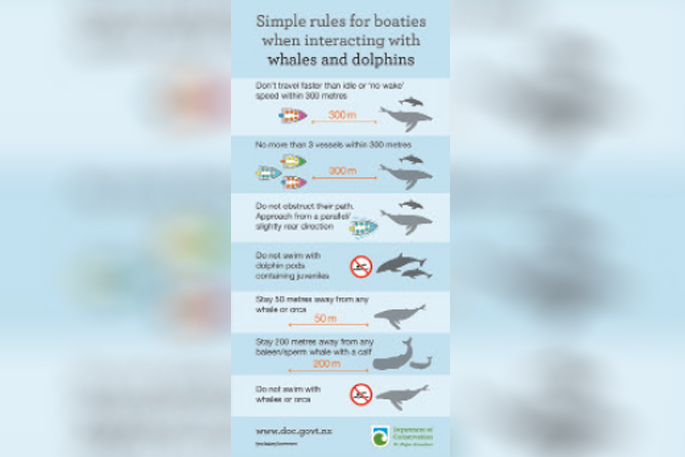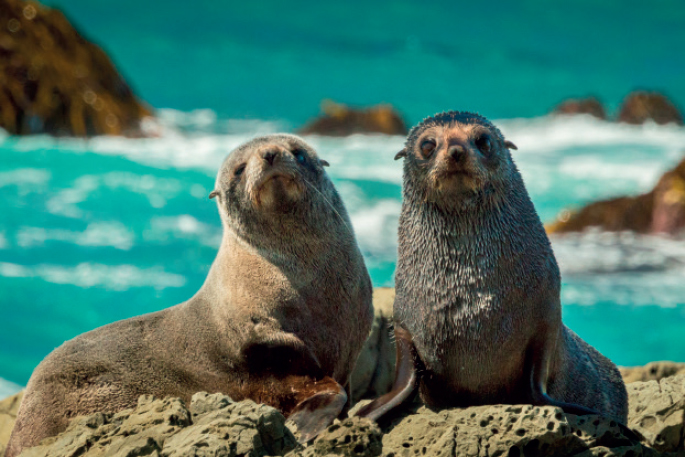‘We are guests on the water’ is the message the Department of Conservation would like to remind boaties, as hot-spots remain busy.
DOC say the safety of sea life should always be at the forefront of people’s minds when enjoying our waters.
With border restrictions of Covid-19 meaning more Kiwis are holidaying at home and enjoying the Bay of Plenty’s water playgrounds, DOC Tauranga marine ranger Karl McCarthy says it is always good to remind people that we share the ocean with living species and to give them the necessary space to be safe in their natural environment.
“Boaties need to be particularly mindful in the shallow harbours of the Bay of Plenty where boat traffic is high and animals may be confined to shallow waters,” says Karl.
“Boat strikes and strandings are real risks for these animals.
“The last thing they need is people getting in their bubble particularly when they need to be busy feeding, nursing their young or sleeping.
“It’s not always appropriate to interact with marine mammals and that’s why we recommend going out with a DOC permitted marine mammal operator.
“They have extensive knowledge not only in where to find animals but when and how to best interact with them. “Marine conservation is at the forefront of what they do.”
Trained to protect
Bay Explorer owner Brandon Stone says that as an approved operator, the crew is trained in the rules and regulations regarding different species, as well as understanding the behaviour of different marine life.
“We operate under a DOC permit and stick to the legislation established to help the protection of marine species and their habitat,” says Brandon.
“Our crew members are marine enthusiasts and conservationists.”
Brandon says there are many ways to safely share the waters with marine life with the right understanding of their biology and behaviour.
For example, finding marine mammals in the Bay of Plenty requires an understanding of tidal flows and current movements. Boaties who are not familiar with this could change direction and speed which potentially increases the risk of striking sealife.
“Constant speed and constant direction is important.
“We are trained to know, for example, what direction a whale is swimming in. But an untrained person may change direction or increase speed suddenly trying to sight particular wildlife.”
Stay aware
Keeping focused on the water and understanding the behaviours of different marine life is also paramount.
“Understanding the behaviour is important, for example approaching dolphins, we are trained to know when they are feeding, or what they are doing at certain times in their natural habitat.
“At the beginning of summer, dolphin pods can be particularly vulnerable as there are a lot of juvenile dolphins in the water.
“Unfortunately some people in their boats just do not keep an eye on the water and what’s around them.”
Brandon says the tours aim to educate people about their biology, behaviours and habitat.
Karl says we are all responsible for ensuring the continued safety of our marine life.
Being mindful and slowing right down to idle or no wake speed when coming across pods of dolphins, turtles, and other sea life prevents the likelihood of boat strikes, says Karl.
Written in law
All reptiles, including sea turtles, are protected under the Wildlife Act 1953 and all seals, sea lions, dolphins and whales are protected under the Marine Mammals Protection Act 1978.
It’s an offence to harass, disturb, injure or kill marine mammals and sea turtles.
If you come across injured or stranded marine mammals and reptiles call 0800 DOC HOT (0800 362 468).




0 Comments
Leave a Comment